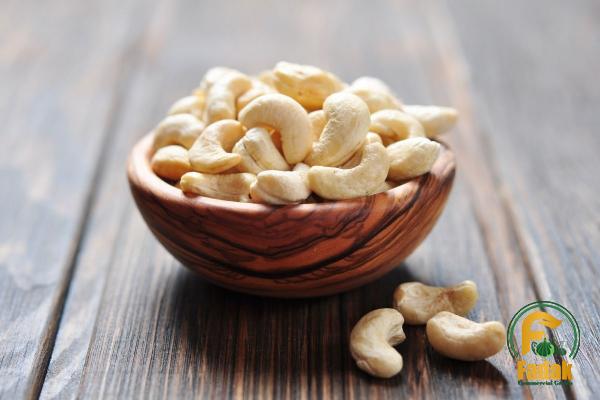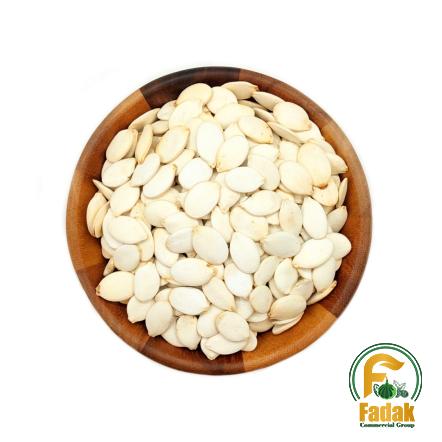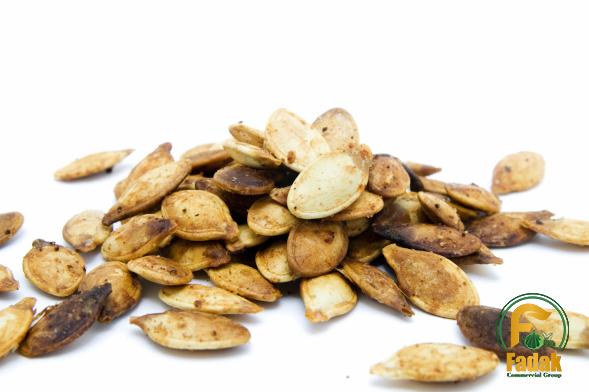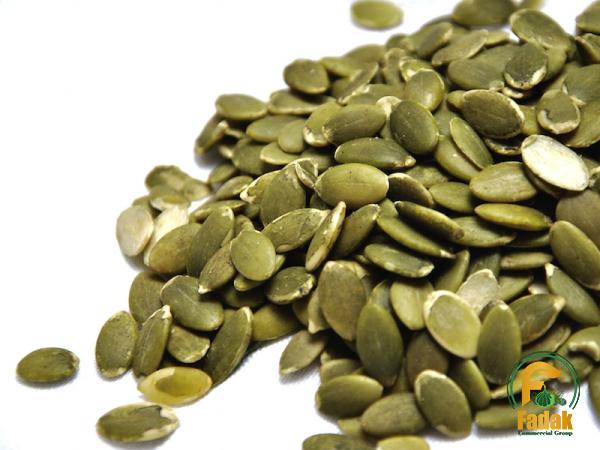While many of us are familiar with cashew nuts and their culinary applications, fewer people are aware of the delicious and nutritious fruit known as the cashew apple. The cashew apple, often overlooked, is a flavorful and versatile edible that holds immense culinary potential. In this article, we delve into the fascinating world of cashew apples, exploring their characteristics, nutritional value, and various uses in the culinary realm. Understanding the Cashew Apple: The cashew apple is the fruit of the cashew tree, scientifically known as Anacardium occidentale. While many refer to it as a fruit, technically, it is a pseudocarp or false fruit since it grows out of a swollen stem rather than the ovary. Resembling a bell pepper or a pear in shape, the cashew apple has a vibrant yellow to red skin, contrasting beautifully with its smooth, gray-green pulp. It is worth noting that, contrary to the apple-like name, cashew apples are not related to apples botanically. Taste and Aroma: Cashew apples boast a unique taste profile that combines sweetness, tartness, and slight astringency. The flavor is often described as a blend of tropical fruits, including pineapple, mango, and citrus, with a slight hint of resin. Alongside their sweet and tangy taste, cashew apples also emanate a tantalizing aroma due to their high content of volatile compounds. Nutritional Value: Cashew apples are celebrated not only for their delightful taste but also for their impressive nutritional composition. They are rich in vitamins C and B6, providing an excellent source of antioxidants and promoting a healthy immune system. Additionally, they contain a significant amount of minerals such as calcium, iron, and potassium. Consuming cashew apples can also contribute to digestive health due to their high fiber content. Culinary Uses: 1. Fresh Consumption: The simplest and most direct way to enjoy cashew apples is to eat them fresh. Their juicy and succulent texture makes them a delightful snack on their own. Simply remove the skin and enjoy the flesh, but be cautious not to consume the seeds, as they contain a toxic substance that needs to be carefully processed before consumption. 2. Juices and Beverages: Cashew apples are often used to make refreshing and invigorating juices. Combining the pulp with water and sweeteners like sugar or honey creates a thirst-quenching beverage.

nut
 To add a tangy twist, lime or lemon juice can be squeezed into the drink. For a more indulgent experience, cashew apple juice can be mixed with other tropical juices like mango or pineapple. 3. Jams, Jellies, and Preserves: The natural sweetness and tartness of cashew apples make them an ideal base for creating delicious jams, jellies, and preserves. By cooking the fruit with sugar, natural pectin is released, resulting in a thick, flavorful spread. Adding spices like cinnamon or cloves can elevate the taste even further, offering a delightful accompaniment to bread, pastries, or cheese. 4. Culinary Creativity: Both the taste and texture of cashew apples open up endless possibilities for culinary experimentation. Chefs and home cooks alike can explore incorporating cashew apples into various dishes. The mildly acidic and aromatic nature of the fruit pairs well with seafood, poultry, and salads. It can also be a unique addition to tropical-style salsas, chutneys, and relishes. Nutraceutical and Medicinal Properties: Beyond their culinary applications, cashew apples possess several nutraceutical and medicinal properties. The rich antioxidant profile of cashew apples contributes to their ability to combat free radicals, offering protection against oxidative stress and reducing the risk of chronic diseases. Additionally, their high fiber content aids in promoting healthy digestion and preventing constipation. Challenges and Limitations: While cashew apples hold immense potential, there are certain limitations and challenges to their widespread usage. One of the primary constraints is their perishability, as cashew apples have a short shelf life and are highly susceptible to spoilage. Transportation and storage methods need to be optimized to preserve their freshness. Furthermore, the presence of toxic substances, such as urushiol, in the cashew apple seeds necessitates careful processing to avoid any human health risks. Conclusion: In conclusion, the cashew apple is an often underutilized and underappreciated culinary gem. With its unique taste, delightful aroma, and impressive nutritional composition, this pseudo-fruit offers a wealth of possibilities in the world of cuisine. From enjoying it fresh to creating juices, jams, and even exploring experimental recipes, it is evident that cashew apples are a versatile ingredient that deserves more attention. So, the next time you come across a cashew apple, embrace its potential and let your culinary creativity take flight. Exploring the Commercial Viability of Cashew Apple Products 1. Market Potential: The cashew apple market has tremendous potential, both domestically and internationally. While the cashew nut industry is well established, the cashew apple sector remains largely untapped. With the growing interest in exotic fruits and the demand for unique flavors, there is a significant opportunity to capitalize on the versatility and culinary appeal of cashew apples. Expanding market access and educating consumers about the potential uses of these fruits can create a lucrative market niche for cashew apple products.
To add a tangy twist, lime or lemon juice can be squeezed into the drink. For a more indulgent experience, cashew apple juice can be mixed with other tropical juices like mango or pineapple. 3. Jams, Jellies, and Preserves: The natural sweetness and tartness of cashew apples make them an ideal base for creating delicious jams, jellies, and preserves. By cooking the fruit with sugar, natural pectin is released, resulting in a thick, flavorful spread. Adding spices like cinnamon or cloves can elevate the taste even further, offering a delightful accompaniment to bread, pastries, or cheese. 4. Culinary Creativity: Both the taste and texture of cashew apples open up endless possibilities for culinary experimentation. Chefs and home cooks alike can explore incorporating cashew apples into various dishes. The mildly acidic and aromatic nature of the fruit pairs well with seafood, poultry, and salads. It can also be a unique addition to tropical-style salsas, chutneys, and relishes. Nutraceutical and Medicinal Properties: Beyond their culinary applications, cashew apples possess several nutraceutical and medicinal properties. The rich antioxidant profile of cashew apples contributes to their ability to combat free radicals, offering protection against oxidative stress and reducing the risk of chronic diseases. Additionally, their high fiber content aids in promoting healthy digestion and preventing constipation. Challenges and Limitations: While cashew apples hold immense potential, there are certain limitations and challenges to their widespread usage. One of the primary constraints is their perishability, as cashew apples have a short shelf life and are highly susceptible to spoilage. Transportation and storage methods need to be optimized to preserve their freshness. Furthermore, the presence of toxic substances, such as urushiol, in the cashew apple seeds necessitates careful processing to avoid any human health risks. Conclusion: In conclusion, the cashew apple is an often underutilized and underappreciated culinary gem. With its unique taste, delightful aroma, and impressive nutritional composition, this pseudo-fruit offers a wealth of possibilities in the world of cuisine. From enjoying it fresh to creating juices, jams, and even exploring experimental recipes, it is evident that cashew apples are a versatile ingredient that deserves more attention. So, the next time you come across a cashew apple, embrace its potential and let your culinary creativity take flight. Exploring the Commercial Viability of Cashew Apple Products 1. Market Potential: The cashew apple market has tremendous potential, both domestically and internationally. While the cashew nut industry is well established, the cashew apple sector remains largely untapped. With the growing interest in exotic fruits and the demand for unique flavors, there is a significant opportunity to capitalize on the versatility and culinary appeal of cashew apples. Expanding market access and educating consumers about the potential uses of these fruits can create a lucrative market niche for cashew apple products.
Specifications of nut
 2. Value-added Processing: To fully utilize the commercial potential of cashew apples, value-added processing is essential. By processing the fruit into various products such as juices, jams, and preserves, the shelf life can be extended, enabling distribution to wider markets. Additionally, value addition enhances profitability as processed products often fetch higher prices compared to raw fruit. Establishing processing facilities equipped with modern technology and adhering to quality standards is crucial for achieving commercial success. 3. Export Opportunities: Cashew apple products offer significant export opportunities, particularly in regions where cashew cultivation is prevalent. Countries like Brazil, India, Vietnam, and Nigeria, which are major cashew producers, can leverage their existing cashew infrastructure to expand into the cashew apple export market. By promoting these products in international markets and partnering with global distributors, export volumes can be increased, contributing to economic growth and diversification. 4. Health-Food Industry: Cashew apple products align well with the health-food industry, which focuses on offering natural and nutrient-dense options. The high antioxidant content, fiber-rich nature, and essential vitamins and minerals found in cashew apples make them an attractive ingredient for health-conscious consumers. Positioning cashew apple products as a superfood or functional food can tap into the growing health-food market segment, where consumers are willing to pay a premium for products that offer nutritional benefits. 5. Culinary Tourism: Cashew apple products have the potential to contribute to the burgeoning culinary tourism industry. Regions known for their cashew cultivation can leverage the presence of these fruits to attract food enthusiasts and tourists interested in exploring unique culinary experiences. Offering guided tours, tastings, and workshops focused on cashew apples can create an immersive and memorable experience, increasing the region’s appeal as a culinary destination. 6. Collaboration with Local Communities: Engaging with local communities and small-scale farmers is crucial for the sustainable growth of the cashew apple industry. By partnering with these communities, businesses can support rural development and provide a reliable market for cashew apple farmers. Establishing fair trade practices and ensuring equitable profit-sharing can contribute to social and economic empowerment, fostering a mutually beneficial relationship between businesses and local stakeholders. 7. Research and Development: Investing in research and development is essential for unlocking the full potential of cashew apple products. This includes enhancing processing techniques, developing new product formulations, and exploring applications in the pharmaceutical and cosmetic industries. Collaborations between research institutions, government agencies, and private enterprises can drive innovation, enabling the industry to evolve and stay competitive in the market. 8. Sustainability and Environmental Impact: As the cashew apple industry grows, it is crucial to prioritize sustainability practices throughout the supply chain.
2. Value-added Processing: To fully utilize the commercial potential of cashew apples, value-added processing is essential. By processing the fruit into various products such as juices, jams, and preserves, the shelf life can be extended, enabling distribution to wider markets. Additionally, value addition enhances profitability as processed products often fetch higher prices compared to raw fruit. Establishing processing facilities equipped with modern technology and adhering to quality standards is crucial for achieving commercial success. 3. Export Opportunities: Cashew apple products offer significant export opportunities, particularly in regions where cashew cultivation is prevalent. Countries like Brazil, India, Vietnam, and Nigeria, which are major cashew producers, can leverage their existing cashew infrastructure to expand into the cashew apple export market. By promoting these products in international markets and partnering with global distributors, export volumes can be increased, contributing to economic growth and diversification. 4. Health-Food Industry: Cashew apple products align well with the health-food industry, which focuses on offering natural and nutrient-dense options. The high antioxidant content, fiber-rich nature, and essential vitamins and minerals found in cashew apples make them an attractive ingredient for health-conscious consumers. Positioning cashew apple products as a superfood or functional food can tap into the growing health-food market segment, where consumers are willing to pay a premium for products that offer nutritional benefits. 5. Culinary Tourism: Cashew apple products have the potential to contribute to the burgeoning culinary tourism industry. Regions known for their cashew cultivation can leverage the presence of these fruits to attract food enthusiasts and tourists interested in exploring unique culinary experiences. Offering guided tours, tastings, and workshops focused on cashew apples can create an immersive and memorable experience, increasing the region’s appeal as a culinary destination. 6. Collaboration with Local Communities: Engaging with local communities and small-scale farmers is crucial for the sustainable growth of the cashew apple industry. By partnering with these communities, businesses can support rural development and provide a reliable market for cashew apple farmers. Establishing fair trade practices and ensuring equitable profit-sharing can contribute to social and economic empowerment, fostering a mutually beneficial relationship between businesses and local stakeholders. 7. Research and Development: Investing in research and development is essential for unlocking the full potential of cashew apple products. This includes enhancing processing techniques, developing new product formulations, and exploring applications in the pharmaceutical and cosmetic industries. Collaborations between research institutions, government agencies, and private enterprises can drive innovation, enabling the industry to evolve and stay competitive in the market. 8. Sustainability and Environmental Impact: As the cashew apple industry grows, it is crucial to prioritize sustainability practices throughout the supply chain.
buy nut
 This includes adopting environmentally friendly farming practices, optimizing water and energy usage, and implementing waste management strategies. By embracing sustainable practices, the industry can not only reduce its environmental impact but also meet the expectations of environmentally conscious consumers. 9. Regulatory Compliance: To ensure the safety and quality of cashew apple products, it is essential to comply with relevant regulations and standards. This includes adhering to food safety guidelines, obtaining necessary certifications, and conducting regular quality control checks. Adhering to these standards safeguards consumer trust and facilitates market access, particularly in international markets with stringent import regulations. 10. Marketing and Branding: Effective marketing and branding strategies are crucial for promoting cashew apple products and differentiating them in a competitive market. Highlighting the unique taste, nutritional benefits, and versatility of cashew apples can attract consumer interest. Utilizing digital marketing platforms, social media campaigns, and collaborations with influencers can help raise awareness and generate buzz around cashew apple products. 11. Collaborating with Chefs and Food Innovators: Collaborating with renowned chefs, food innovators, and culinary influencers can elevate the profile of cashew apple products. By showcasing their versatility through creative recipes, unique flavor combinations, and innovative presentations, these tastemakers can inspire consumers to incorporate cashew apples into their culinary repertoire. This collaboration can also generate media coverage and create a buzz around cashew apple products. 12. Product Diversification: To cater to a broader consumer base and expand market opportunities, diversifying the range of cashew apple products is crucial. This could include exploring the development of dried cashew apple snacks, frozen pulp for culinary applications, or even cashew apple-based alcoholic beverages. By continually innovating and introducing new products, businesses can stay ahead of market trends and maintain consumer interest. Conclusion: The cashew apple, often overshadowed by its nut counterpart, possesses immense commercial potential. By recognizing its culinary value and leveraging its nutritional benefits, businesses can tap into various market opportunities. From value-added processing to export markets, health-food industry collaborations to culinary tourism, diversification to sustainability practices, the cashew apple industry offers a spectrum of possibilities for entrepreneurs, researchers, and communities. With strategic planning, innovation, and a focus on quality, the cashew apple industry can flourish and uplift rural economies while satisfying the evolving demands of global consumers.
This includes adopting environmentally friendly farming practices, optimizing water and energy usage, and implementing waste management strategies. By embracing sustainable practices, the industry can not only reduce its environmental impact but also meet the expectations of environmentally conscious consumers. 9. Regulatory Compliance: To ensure the safety and quality of cashew apple products, it is essential to comply with relevant regulations and standards. This includes adhering to food safety guidelines, obtaining necessary certifications, and conducting regular quality control checks. Adhering to these standards safeguards consumer trust and facilitates market access, particularly in international markets with stringent import regulations. 10. Marketing and Branding: Effective marketing and branding strategies are crucial for promoting cashew apple products and differentiating them in a competitive market. Highlighting the unique taste, nutritional benefits, and versatility of cashew apples can attract consumer interest. Utilizing digital marketing platforms, social media campaigns, and collaborations with influencers can help raise awareness and generate buzz around cashew apple products. 11. Collaborating with Chefs and Food Innovators: Collaborating with renowned chefs, food innovators, and culinary influencers can elevate the profile of cashew apple products. By showcasing their versatility through creative recipes, unique flavor combinations, and innovative presentations, these tastemakers can inspire consumers to incorporate cashew apples into their culinary repertoire. This collaboration can also generate media coverage and create a buzz around cashew apple products. 12. Product Diversification: To cater to a broader consumer base and expand market opportunities, diversifying the range of cashew apple products is crucial. This could include exploring the development of dried cashew apple snacks, frozen pulp for culinary applications, or even cashew apple-based alcoholic beverages. By continually innovating and introducing new products, businesses can stay ahead of market trends and maintain consumer interest. Conclusion: The cashew apple, often overshadowed by its nut counterpart, possesses immense commercial potential. By recognizing its culinary value and leveraging its nutritional benefits, businesses can tap into various market opportunities. From value-added processing to export markets, health-food industry collaborations to culinary tourism, diversification to sustainability practices, the cashew apple industry offers a spectrum of possibilities for entrepreneurs, researchers, and communities. With strategic planning, innovation, and a focus on quality, the cashew apple industry can flourish and uplift rural economies while satisfying the evolving demands of global consumers.










Your comment submitted.